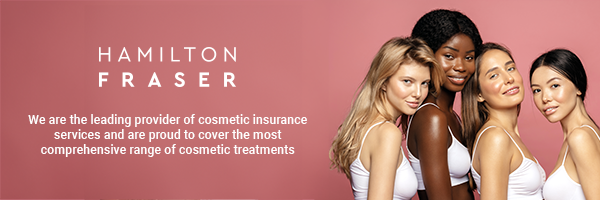
Point of View
Piroska Cavell discusses the delicate balance between ageism and aesthetic treatments
“A better, stronger, more beautiful, perfect you”. Does this phrase sound familiar? Many of us have used this, or a version of this message in our marketing.
There have been two brilliant films released recently starring some stunning older female icons: Demi Moore, Pamela Anderson and Jaimee Lee Curtis. A trio of strong, successful women who promote a fabulous natural look, giving them an age-defying appearance without distortion.
However, we know that great aesthetic treatments have been carried out.
Demi is in the astonishingly brilliant film The Substance, where the promise is that individuals need to become “A more beautiful, stronger, perfect version of you”.
The Last Showgirl, starring Pamela Anderson and Jamie Lee Curtis, emphasises that in spite of talent and experience when the physical appearance shows signs of ageing, certain careers will be deemed no longer suitable.
Today, the advances and focus are shifting in medical aesthetics from treating just the ageing skin of the face to enhancing the body, including intimate areas, to menopause, weight loss, longevity and lifestyle medicine. We have to ask are we perpetrators of marketing ‘The Substance?’
I, for one, am not comfortable as a woman and as a medical practitioner encouraging patients to find fault with themselves and develop self-loathing to a greater or lesser degree. Is this what we are manipulating our patients to believe with our marketing messages?
As ethical medical practitioners, we need to develop an awareness and consider what is our role in women’s self-perception. What are we actually saying to patients?
There is a wealth of scientific evidence highlighting the impact of media in all forms contributing to increased societal pressures to look younger for longer, that to show signs of ageing indicates the end of so many important areas of life, including relationships, careers, and a loss of relevance. The film The Substance goes on to examine the self-destructive development of an obsessive pursuit of this unrealistic goal.
Are we encouraging our patients to begin this impossible journey?
We know that our patients are vulnerable to these kinds of messages, and, whilst we are aware of the importance of identifying body dysmorphia, the subconscious message within aesthetics marketing is very often the same as in The Substance and, therefore reinforcing the message from The Last Showgirl.
Are we responsible for encouraging our patients, the majority of which are women, to feel this way? Is our marketing preying on our patient’s insecurities? As medical aesthetic practitioners we need to examine closely our marketing messages.
Is your marketing ethical?
These films have also triggered a knee-jerk response, which I did not anticipate, which is the antagonising of the sector of society who condemn, mainly women, for having aesthetic treatments and also the practitioners providing them. Individuals who are anti-aesthetics and deride women and men for having treatments. I myself have experienced this with some of my clinic posters being defaced with slogans such as “ Body Fascist” scrawled across them and “JUST BE YOU”.
Alongside the evidence of the impact on women from social media messages encouraging the pursuit of perfectionism. There is also a wealth of evidence confirming the importance of self -satisfaction with an individual’s reflection, has on good mental health and the positive benefits aesthetic treatments can have on a patient’s depression, anxiety and self-confidence.
As medical aesthetic practitioners, we promote ourselves as highly trained, skilled practitioners, and our patients are reassured that as medical practitioners, we are obligated to uphold our code of ethics. We know that patients react differently towards medical professionals. Our patients are more inclined to trust us purely because we are medical, and our messages relating to their well-being and what we can offer them hold more gravitas than in other industries.
What is the alternative?
As a medical aesthetic practitioner with a business to maintain and grow, emotive marketing messages are key in attracting patients into your clinic and showcasing innovative treatments to stem the signs of ageing from the inside and out.
Careful marketing promoting self-love and body positivity is possible. Messages reinforce how fabulous the body and skin are, highlighting how we, as medical aesthetics practitioners, can reveal patients’ best features to them and build confidence and trust.
I am passionate about boosting patients’ confidence in themselves, not just in their treatments. In my clinic, our efforts are focused not just on technical knowledge and skills but also on encouraging all patients to develop a more positive mindset related to their reflection.
